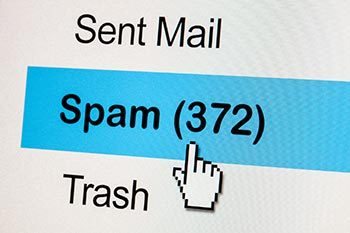5 May 2017
Jane Davidson shares her frustrations over recruitment agencies that, though can prove invaluable when needed, put off potential jobseekers when bombarding them with spam.

The way in which vets and veterinary nurses are recruited has changed – there seems to have been an explosion of recruitment companies out there. Using an agency can save time and money for veterinary practices, so it’s not really a surprise.

It can work for you, too.
I was looking for work – but had some strict requirements – and an agent didn’t laugh and say it was impossible. He took my information and came back with four practices that were interested. I couldn’t have done that with just a single email on my own.
What is sometimes a surprise is agencies’ conduct. I don’t seem to be able to get through a week without an email, telephone call or Facebook contact from a person I’ve never heard of, from an agency I don’t recall signing up for.
I’m sure I have signed up for some of them over the years. But one I recall hearing from hadn’t contacted me in five years.
While no set timelines exist on how long you can hold personal data, I would suspect keeping data unused for five years would start to look a little unprofessional. Data protection is regulated via the Data Protection Act 1998. It states companies should not be keeping data for “longer than is necessary”.
I would suggest most people’s career needs would have changed significantly in five years, so I think it would have strayed into “longer than necessary” territory – especially as the agency had apparently not had any work for me in those five years. Note to self: work on that CV.
If you are receiving repeated emails from one company, it is worth noting the following statement, taken from the Information Commissioner’s Office, regarding spam emails: “The Privacy and Electronic Communications Regulations 2003 cover the sending of email marketing. This legislation says that organisations must only send marketing emails to individuals if you have agreed to receive them, except where there is a clearly defined customer relationship.”
Even if you have signed up for contact, you can stop this at any time – “unsubscribe” options from emails must be available, or an “opt-out” option from text messages, according to GOV.UK
Yet, I’ve had agencies send me “do not reply” emails with no unsubscribe option.

That’s the basics of standard contact – telephone calls and emails – but what about social media?
Should recruitment agents be “befriending”, “following” or generally hanging around with people they don’t know?
Connecting with people who you don’t know in real life is the grey area in social media. Are they really who they say they are? I feel befriending potential candidates on Facebook breaks basic safety rules.
If a person I didn’t know, and had never heard of, suddenly started messaging me or asking to be a friend, I would be suspicious.
But, if he or she had “recruitment consultant” as a job title, is it suddenly okay? No, it’s not. Added to that, some people don’t say they are in recruitment and it takes an internet search to find out what they do. What a waste of my time!
I often have people befriend me on Facebook because of my blogging, which is great. I have my Facebook page set up so it’s all veterinary nurse-related, and it’s great to connect with people. I don’t want to not accept friend requests, but I also don’t want to be friends with just anyone who pops up, so I do spend time just checking, but that’s me – I don’t feel everyone should have to do that to filter recruitment consultants.
Searching social media for potential candidates is a hot topic in recruitment. Endless articles, such as “Facebook recruitment: how to source candidates on the largest social network”, are out there on what and what not to do.

Advice says recruitment agents should not be befriending potential candidates on Facebook. Music to our ears! Yes, searching for potential candidates on Facebook is allowed, but directly messaging or contacting them is not appropriate. Yes, find names, but then network to get details or do an internet search.
However, some articles advocate joining Facebook groups of people who are in the industry, such as “How to create a recruiting strategy on Facebook”. I find it odd recruitment agencies join groups on Facebook to search for people.
Groups exist about veterinary employment. No problem – join those, but just joining chat groups? If it was just to search for names, that’s one thing, but this link is suggesting starting posts to get people chatting. We don’t seem to have that yet, but if the suggestion is out there, it might be enough to prompt someone to do it. I do like the advice to be open about posting job adverts and promoting your company culture – all good stuff. But creating “fake news” posts? Nope.
One of the things I think recruitment companies forget is sometimes their business model is based on what happens “in the city” – and not Carrie Bradshaw’s city, but the “square mile”; the financial sector.
I’ve met HR people who think they can run vet recruitment as you would for a group of stockbrokers. Well, you can’t. A lot of trust exists between vets and veterinary nurses, and our employers. We might not take down Wall Street if we make an error, but we can cause just as much heartache.
We know a large number of recruitment agencies exist and we know many practices now favour recruiting through agencies. But, we can find you without having you bombard us with emails, friend requests and messages. In fact, these might be to your detriment. I’ve certainly got a couple of agencies that have persisted with contacting me when I’ve politely advised I’m not looking for work. I’ll just confirm, if you do that, I won’t be using you when I am looking for work.